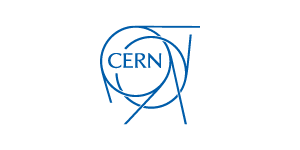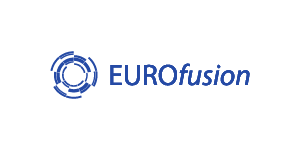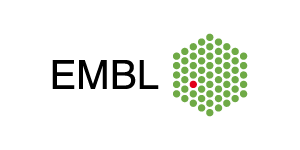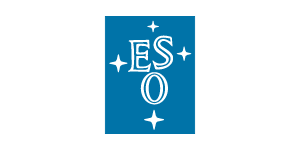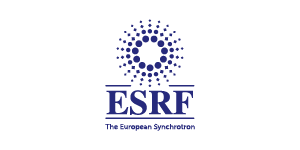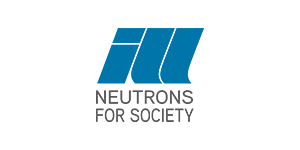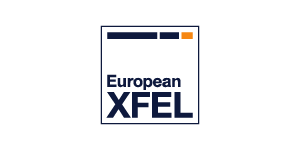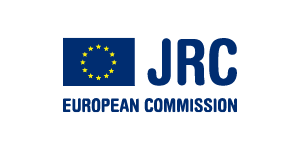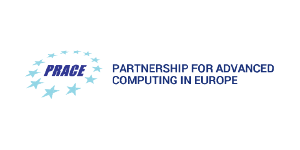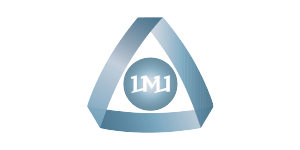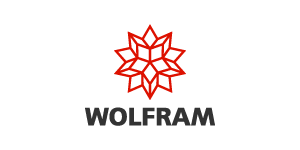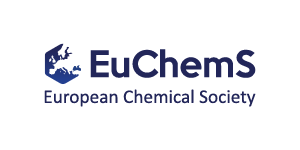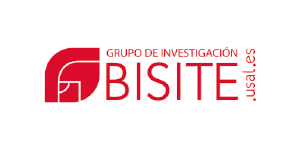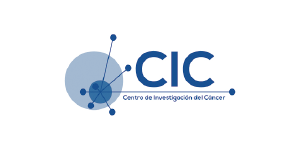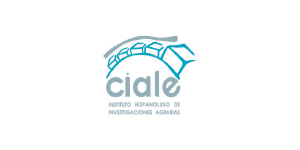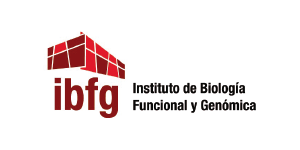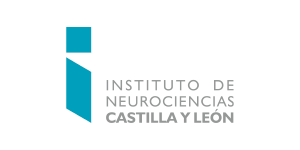The participants compete for a number of core prizes on the basis of a written description of their work, their exhibited material and the interviews with the Contest Jury. In addition to this, a limited number of special donated prizes are awarded by the Jury, to offer some winners the opportunity to benefit from the specific experiences linked to these prizes. It is up to the Jury to decide whether a prize-winner can receive both a core prize and a special donated prize.
The Core Prizes are the principal prizes awarded at the contest. These are cash prizes. In the case of a team winning such a prize, the amount is shared equally between the members of the team.
THESE INCLUDE FOR 2020 CONTESTANTS:
Two First Prizes worth € 7,000 each
Two Second Prizes worth € 5,000 each
Two Third Prizes worth € 3,500 each
THESE INCLUDE FOR 2021 CONTESTANTS:
Four First Prizes worth € 7,000 each
Four Second Prizes worth € 5,000 each
Four Third Prizes worth € 3,500 each
ASSOCIATED WITH THE FIRST PRIZE
There is one Honorary Prize associated with the first prizes.
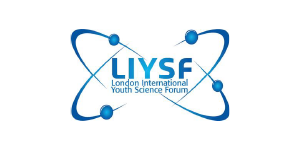
London International Youth Science Forum (LIYSF)
Up to three contestants receive an all-expenses paid trip to London to attend the London International Youth Science Forum (LIYSF). The prize covers the travel costs from the country of origin, accommodation, meals, registration and participation in full a programme of activities. LIYSF brings together 300 science students from around 60 countries worldwide. The programme, which includes visits to industrial sites and world class research laboratories and facilities, lectures, demonstrations and seminars from leading scientists, highlights the links between individual fields of study and introduces all participants to the latest thinking across a broad range of science.
Participants are able to interact with the eminent speakers, to debate on current issues and to explore the way in which their chosen subject relates to other studies and has an impact on the world at large. Each year’s LIYSF becomes a multicultural community, and, with its busy social activities programme, provides a unique opportunity to meet and develop friendships and contacts across the world. The participants attending LIYSF are usually between the age of 17 and 21 years old.
For further information, please contact:
London International Youth Science Forum,
Royal Parade Mews, Chislehurst,
Kent, BR7 6TN, United Kingdom.
Tel: +44 (0)20 8295 8395
Fax: +44 (0)20 8295 8650
Email: enquiries@liysf.org.uk
Web: www.liysf.org.uk
Conference Director: Richard Myhill
(Richard.myhill@liysf.org.uk)
The European Commission is very grateful to the organisations that offer these special prizes to the contestants.
The Special Donated Prizes are offered to contestants who, according to the EUCYS Jury, would benefit from the specific experience that these prizes offer. They are mostly study visits to leading scientific organisations:
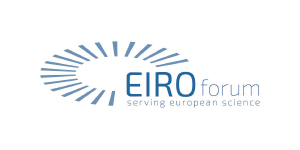
EIROforum Prizes
The Special Donated Prizes of EIROforum are offered to contestants who, according to the EUCYS Jury, would benefit from the specific experience that these prizes offer. They consist of (up to) one-week visits to renowned scientific organisations, where the prize-winners would have unique opportunities to get acquainted with world-class facilities, experiments and cutting-edge instrumentation:
EIROforum members eiroforum.org each kindly award individual prizes as follows:
European Organization for Nuclear Research (CERN) offers a project prize (for up to 3 people) of a week’s visit to its Geneva site; EUROfusion offers one project a one week stay (for up to 3 people) at a EUROfusion member research facility; The European Molecular Biology Laboratory (EMBL) offers a project prize (for up to 3 people) of a week’s placement at its premises in Heidelberg; The European Space Agency (ESA) offers a single prize winner the opportunity to spend a week at ESA’s main technical centre, ESTEC, in The Netherlands; European Southern Observatory (ESO) offers a project prize (for up to 3 people) of a visit of up to one week to the ESO headquarters in Germany; European Synchrotron Radiation Facility (ESRF) operator of the world’s most powerful synchrotron radiation source, offers up to 2 people (3 if the ESRF prize is combined with that of the ILL) of a winning project a one week visit to its site in Grenoble; The Institut Laue-Langevin (ILL) operator of the world’s most intense neutron source, offers up to 2 people (3 if the ESRF prize is combined with that of the ILL) of a winning project a one week visit to its site in Grenoble; European X-Ray Free-Electron Laser Facility GmbH (European XFEL) offers one winner a one-week placement its site in Schenefeld (Hamburg metropole).
EIROforum is a partnership of Europe’s eight largest intergovernmental research organisations. As world leaders within their respective fields of science, the member organisations of EIROforum constitute the vanguard of European science. Operating some of the largest research infrastructures in Europe, devoted to the exploration of fundamental quests of mankind such as the origin and the evolution of matter, biological life and structure of our Universe, they enable European scientists to engage in truly cutting-edge research, and be on the forefront on a global scale.
In support of the EUCYS initiative, EIROforum members are pleased to offer (up to) one-week visits/placements to their organisations. To ensure optimum value of the experience to the prize winners, these will be offered on the basis of the relevance of the activities of the organisation to the field of interest of the nominated student. For safety and sometimes security reasons, age restrictions may apply.
EIROforum also sends experienced scientists to give a key note address to the contestants. As a curtesy to EIROforum, those students who would like to be considered for the EIROforum prizes, and their National Organisers, should endeavour to attend the EIROforum lecture during the contest.
European Organization for Nuclear Research (CERN)
European Organization for NuclearResearch (CERN), Geneva, Switzerland, was founded in 1954. CERN’s main research area is particle physics.
Complex machines such as particle accelerators and detectors are developed and used to study the basic constituents of matter. The Large Hadron Collider (LHC), a 27-kilometre underground circular machine, began colliding particles at very high energy in 2010 giving new insights into the origin of the Universe. CERN is also famous for the invention of the World Wide Web, which was originally developed to give scientists access to data irrespective of their location. In 2013 the Nobel Prize for Physics was awarded for the theoretical discovery of the long-sought Higgs boson, which the LHC experiments confirmed experimentally in 2012.
CERN offers a prize of a week’s visit for up to three students involved in the selected project. Topics should be related to a scientific or engineering field of relevance to CERN, which covers a large spectrum of projects, especially on the engineering side. Minimum age: 18 years.
EUROfusion
EUROfusion is a framework between EURATOM and various fusion research programmes in many EU countries. Its aim is to provide an infrastructure for fusion research. euro-fusion.org
The European scientific programme is based on the Roadmap to the Realisation of Fusion Energy. The programme aims to pave the way for ITER, an engineering project currently being constructed in southern France, which is designed to be the first fusion reactor to release more energy than is needed to power it, and to develop concepts for the future demonstration fusion power plant, DEMO.
EUROfusion will award a one week stay at one of its member facilities for up to three persons. Topics include: plasma wall interaction, real time control of plasmas, computer modelling of plasmas, magneto hydrodynamics, engineering related topics to build tailored diagnosticts. Minimum age: 16 years.
European Molecular Biology Laboratory (EMBL)
The European Molecular Biology Laboratory (EMBL) is Europe’s flagship laboratory for the life sciences. Established in 1974 as an intergovernmental organisation, EMBL is supported by over 20 member states. EMBL performs fundamental research in molecular biology, studying the story of life. The institute offers services to the scientific community; trains the next generation of scientists and strives to integrate the life sciences across Europe.
EMBL is international, innovative and interdisciplinary. Its more than 1600 staff, from over 80 countries, operate across six sites in Barcelona (Spain), Grenoble (France), Hamburg (Germany), Heidelberg (Germany), Hinxton (UK) and Rome (Italy). EMBL scientists work in independent groups and conduct research and offer services in all areas of molecular biology.
EMBL research drives the development of new technology and methods in the life sciences. The institute works to transfer this knowledge for the benefit of society.
EMBL offers a prize of a week’s visit to its Heidelberg headquarters for up to three students involved in the selected project. Eligible topics should be in the field of molecular biology. Minimum age: 18 years.
European Space Agency (ESA)
The European Space Agency (ESA) Paris, France. ESA is Europe’s gateway to space. Its mission is to shape the development of Europe’s space capability and ensure that investment in space continues to deliver benefits to the citizens of Europe and the world. It is an international organisation with 22 member states, and by coordinating the financial and intellectual resources of its members, it can undertake space programmes and activities far beyond the scope of any single European country. Its programmes and missions cover astronomy, planetary, solar, and fundamental physics, human spaceflight and robotic exploration, Earth observation, launchers, navigation, telecommunications and applications, and space engineering research and development.
ESA offers a single prize winner the opportunity to spend a week at ESA’s main technical centre, ESTEC, in The Netherlands. The winner must be at least 18 and already studying at university, preferably science or engineering at the time of taking up the prize.
European Southern Observatory (ESO)
The European Southern Observatory (ESO), Garching, near Munich, Germany, and Chile. ESO is the foremost intergovernmental astronomy organisation in Europe and the world’s most productive ground-based astronomical observatory by far.
ESO is supported by 15 countries, and carries out an ambitious programme focused on the design, construction and operation of powerful ground-based observing facilities enabling astronomers to make important scientific discoveries. ESO also plays a leading role in promoting and organising cooperation in astronomical research. ESO operates three unique world-class observing sites in Chile – La Silla, Paranal and Chajnantor – and is presently constructing a 39-metre diameter European Extremely Large optical/near-infrared Telescope, the E-ELT, which will become “the world’s biggest eye on the sky”.
ESO offers a prize of a visit of up to one week to its headquarters in Garching, for up to three students. Minimum age: 18 years at the time of taking up the prize.
European Synchrotron Radiation Facility (ESRF)
The European Synchrotron Radiation Facility (ESRF) Grenoble, France, is supported and shared by 22 countries.
The ESRF is the most powerful synchrotron radiation source in the world; it is a stadium-sized machine producing many beams of bright X-ray light. These are guided through a set of lenses and instruments called beamlines where the X-rays illuminate and interact with samples of material being studied. Here, at more than 40 specialized experimental stations, physicists work side by side with chemists and materials scientists. Biologists, medical doctors, geophysicists and archaeologists have become regular users. Companies also send researchers, notably in the fields of pharmaceuticals, cosmetics, petrochemicals and microelectronics. Each year approximately 7,000 researchers travel to Grenoble where they work in a first-class scientific environment to conduct exciting experiments at the cutting edge of modern science
ESRF will award the prize of a one week visit to the EPN Science Campus in Grenoble, for the leader(s) (maximum 2, or 3 if combined with the ILL prize) of a project in a topic related to the structural and dynamical study of condensed matter, materials and living matter using synchrotron radiation X-rays to achieve sub-nanometric resolution in both fundamental and applied research. This could be in the fields of biology, chemistry, cultural heritage, engineering, environmental sciences, materials research, medicine or physics. The visit may be undertaken in parallel with that of the winner(s) of the ILL prize. Minimum age: 18 years at the time of taking up the prize.
Institut Laue-Langevin (ILL)
The Institut Laue-Langevin (ILL), Grenoble, France, operates the most intense neutron source in the world. It is used to examine conventional and newly created materials.
The research at ILL includes the analysis of the structure of new materials for future electronic tools, the measurement of stresses in mechanical materials, and examination of the behaviour of complex molecular assemblies, particularly in a biological environment. The ILL also tackles questions relating to the fundamental properties of matter. Recent research includes the world’s first magnetic soap, great developments on gamma-ray optics and potential Alzheimer treatments.
ILL will award a prize of a one week visit to the EPN Science Campus in Grenoble, for the leader(s) (maximum 2, or 3 if combined with the ESRF prize) of a project in a topic related to a scientific or engineering field of relevance to ILL. The visit could include witnessing technical developments being made in connection with the neutron beams, such as detectors and optical devices, or taking part in an experimental session. Areas covered include: neutron research and technology in the disciplines of chemistry, nuclear physics, chemistry, biology, crystallography and magnetics.
The visit may be undertaken in parallel with that of the winner(s) of the ESRF prize. Students must be at least 18 at the time of taking up the prize.
European XFEL (XFEL.EU)
The European XFEL (XFEL.EU), Schenefeld Hamburg metropole, Germany. European XFEL is an X-ray laser based on a linear accelerator with unique characteristics. Its operation started in September 2017. The facility opened up new research opportunities for a whole range of scientific fields, such as medicine, pharmacy, biology, chemistry, physics, materials science, and nanotechnology.
European XFEL will award a one-week placement at its site in Schenefeld for one person presenting a project in biology, chemistry, engineering, materials research, or physics. The visit will provide insights into the process of operating a new, cutting edge international research facility. Students must be at least 18 at the time of taking up the prize.
The EIROforum organisations constitute true success stories for Europe. In particular, they:
were created by their member states as part of a long-term strategy for the future of European research; attract some of the best scientists and researchers from across the world, thanks to their scientific excellence and cutting-edge facilities; have implemented the European Research Area (ERA) concept and contribute significantly to structuring European research in their specific scientific fields; link European scientific communities with the rest of the world; develop new technologies, instrumentation and electronic infrastructures and support innovation and technology transfer for the benefit of society at large.
The EIROforum organisations have world-class research infrastructures. Notably, they:
operate major research infrastructures – unique in Europe and in some cases in the world; are funded by their member states, with a combined annual budget for science of around 2 400 million Euros; are crucial to the competitiveness of European research, providing up-to-date and continually improved facilities for European scientists; serve more than 25 000 scientists every year (in astronomy, particle physics, fusion, space sciences, condensed matter physics, chemistry, and the life sciences); are active in international, often global, research for the benefit of Europe; possess unique experience in building and operating research infrastructures of great value for the further development of the European Research Area.
EIROforum is also committed to promoting and supporting innovative science education in Europe, as demonstrated by its science education activities.
SCIENCE IN SCHOOL
Published and funded as a cooperative venture by the eight European research organizations of EIROforum, Science in School aims to support teachers in the delivery of their STEM curricula, by connecting them to inspiring, cutting-edge science and technology, in order to foster positive attitudes towards the science that shapes their lives, and attract students to careers in these fields. The programme supports science teaching both across Europe and across disciplines: highlighting the best in teaching and cutting-edge research. It covers not only biology, physics and chemistry, but also earth sciences, engineering and health, focusing on interdisciplinary work.
The contents include teaching materials and projects in science education, up-to-date information on cutting-edge science, interviews with inspiring scientists and teachers, reviews of books and other resources, and many other useful resources for science teachers. The main language of publication is English, and the journal aims to provide translations when possible in other European languages.NScience in School originated as a quarterly print journal. Following a 2019 review, EIROforum decided to move to an online-only model to better reflect changing digital competencies and encourage wider take-up.
The Joint Research Centre kindly offers a two day stay at its Ispra site in Italy for 3 projects (up to nine students).
The Joint Research Centre (JRC) is the European Commission’s science and knowledge service. It performs direct scientific research and provides evidence-based and independent scientific advice to European policy makers helping them to make informed decisions. EU policies that address global and societal challenges –such as financial stability, climate change, food security, water availability or the ageing society– need to be based more and more on a solid scientific understanding. In close cooperation with international partners, the JRC elaborates models and scenarios to assess policy options while stimulating innovation through developing new methods, tools and standards.
The work of the JRC has a direct impact on the lives of European citizens. It promotes a healthy and safe environment; secure energy supplies, sustainable mobility and consumer safety, and helps improve preparedness and response to natural and man-made disasters.
Serving society, stimulating innovation, supporting legislation
The JRC’s headquarters are in Brussels and its seven scientific directorates, which host specialist and unique laboratories, are located on sites in Belgium, Germany, Italy, the Netherlands and Spain.
The JRC award will allow the participants from three successful projects to spend two days at its facilities, shadowing scientists from all over Europe according to the interests of the prize winners.
The Partnership for Advanced Computing in Europe (PRACE) donates the “PRACE Travel Award Voucher for the Best Computational Project”. The EUCYS’s Scientific Committee will select the winner out of the contestants. The voucher has a maximum value of € 2000, to cover the following elements:
Travel, accommodation, meals and transport of the awardee with an accompanying person, if the awardee is not yet of legal age at the time of travelling1.
Visit of a PRACE HPC centre in the winner’s home country provided that the home country is a PRACE Member2.
The PRACE Travel Award Voucher is valid until May 2022. The Voucher is not transferable to another person.
Costs claimed on the Travel Award Voucher need to be justified by original receipts.
PRACE contact is Silke Lang, Communications officer: s.lang@staff.prace-ri.eu
1 The organization of the travel, accommodation, meals and transport will be organized by the PRACE HPC center.
· Travel: plane tickets economic class fare or train tickets second class fare.
· Hotel accommodation until 130 € per room per night, including breakfast, and excluding any additional costs that may be incurred during the stay at the hotel.
2 Subject to the respective and current Corona regulations of the winner’s home country when the visit is planned.
The Partnership for Advanced Computing in Europe (PRACE) is an international non-profit association with its seat in Brussels. The PRACE Research Infrastructure provides a persistent world-class High-Performance Computing service for scientists and researchers from academia and industry in Europe. The computer systems and their operations accessible through PRACE are provided by 5 PRACE members (BSC representing Spain, CINECA representing Italy, ETH Zurich/CSCS representing Switzerland, GCS representing Germany and GENCI representing France). PRACE aisbl is funded by the PRACE Members. The Implementation Phase of PRACE receives funding from the EU’s Horizon 2020 Research and Innovation Programme (2014-2020) under grant agreement 823767. For more information, see www.prace-ri.eu
The PRACE EUCYS Award is given to the best computational project. The winners will receive a travel prize to visit one of the Prace super computing facilities in Europe with all the costs related to the trip covered.
The PRACE EUCYS Award is given to the best computational project. The winners will receive a travel prize to visit one of the Prace super computing facilities in Europe with all the costs related to the trip covered.
The annual National Seminar on Coding Theory (NWCT), named after Stefan Dodunekov (1945-2012) is an annual research event, held since the 1980s. Prof. Dodunekov, the founder of the Bulgarian school of coding theory, was a world-renowned scholar in the area of algebraic and combinatorial theory of error-correcting codes and its applications for data protection and information security. The seminar brings together experienced researchers and young people – university and PhD students, assistant professors, specialists from coding theory and cryptography. Special sessions are devoted to novel ideas in the field, innovative applications of algebraic and geometric coding theory and research achievements of young scientists.
One EUCYS project will be invited to participate in the next edition of NWCT (Q4 2021, Bulgaria).
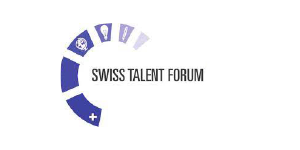
International Swiss Talent Forum
Two students will be invited to attend ISTF with their individual projects.
Expo-Sciences Luxembourg
Two students are invited to attend Expo-sciences Luxembourg with their individual projects.
WOLFRAM Research is donating a one-year Mathematica Student Edition license plus a free one-year subscription to WolframAlpha Pro for all contestants submitting projects in the field of mathematics, physics and computer science.
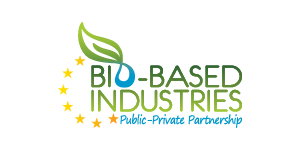
The EUCYS Bioeconomy Bio-Based Industries Prize
About the bioeconomy
The bioeconomy is made up of those parts of the economy that use renewable biological resources from land and sea like crops, forests, fish, animals and micro-organisms to produce food, materials and energy. The bioeconomy is an essential alternative to our current fossil-based economy. It can replace our current fossil fuel-based economy which is dependent on the planet’s limited supply of non-renewable resources, such as petroleum and coal. It’s hailed as the next wave in our economic development and should provide major opportunities for innovation, jobs and growth to help re-industrialize Europe. In fact, the bioeconomy is already a reality. Biomass like plant material, municipal and livestock waste is converted into electricity, fuels, plastics and the basic building blocks for chemical processes. Many materials made from petrochemicals can be replaced with materials made from biomass. Sometimes, small changes to naturally occurring substances can produce useful alternatives to commonly used products such as packing or trash bags. Using biochemicals instead of chemicals derived from petroleum can reduce pollution, increase efficiency, and limit the use of hazardous materials and chemicals in the manufacture process. Enzymes from plants and microorganisms, as well as bacteria and other microbes, can be used in industrial chemical reactions to make a number of everyday products. Enzymes help bring about and speed up chemical reactions. Enzymes are in laundry detergent to improve stain removal. They convert cellulose to sugar, bleach paper and curdle milk for cheese and yogurt. Cups, forks, spoons, knives, plates, food storage containers, T-shirts and pillows can be made from biomass including waste and residues. These products can be made so that they are biodegradable and compostable. It is hoped that the production and use of these bio-products and materials will reduce the amount of biodegradable waste and materials going to landfills.
About the Bio-based Industries Joint Undertaking (BBI JU)
The Bio-based Industries Joint Undertaking (BBI JU) is a partnership between the European Commission and the Bio-based Industries Consortium (BIC) set up in 2014 to fund research and innovation to help to develop the bio-based economy in Europe. BBI JU’s funding is meant to encourage further investment by the private sector through industry. It works by setting up multi-partner projects who work together to solve the scientific, logistic and infrastructural challenges facing the bio-based industry in Europe. Research can be in a lab or in a combination of lab, pilot plant or biorefinery. The BBI JU programme offers enormous opportunities to tackle some major societal, environmental and economic challenges, including climate change, energy and food security and resource efficiency. The bioeconomy EUCYS prize will be awarded by the judges to the project which they feel best uses biotechnology for the production and the conversion of biomass into non-food value-added products1. The winning project should reflect three key principals of the bio-based economy in using raw material of a biological origin, for example whole or parts of plants, trees, algae, marine organisms, micro-organisms, animal in a way which is:
sustainable – renewable – innovative
The winning project will also meet a fourth criteria based on the effectiveness of its overall communicability to the scientific community and the general public. The winning project should promote scientific studies, while raising environmental awareness, and promote the bioeconomy.
The prize will be awarded by BBI JU who will provide a paid 4 to 5-day trip to Brussels for the winning project including travel to/from, accommodation and daily allowance in Brussels2 and participating in a tailor-made experience related to the science behind the BBI JU programme.
The prize awarded will comprise:
a visit and introduction to the Bio-based Industries Joint Undertaking office; a visit to some of the key public institutions shaping European bio-based policy, including the European Parliament’s visitor centre and a look behind the scenes at the European Commission’s Directorate-General for Research and Innovation, as well as meetings with key EU officials; Two one-day visits to bio-based biorefineries and laboratory facilities selected from the following based in: 1) Bio Base Europe Pilot Plant, DSM labs (tbc) and Biotech Campus (tbc) in Gent, Belgium (subject to confirmation) and 2) Biotech Pilot Plant in Delft, The Netherlands (subject to confirmation); the possibility to visit local tourist sites in the relevant locations, where the itinerary permits.
During each one-day excursion, a range of age-appropriate supervised activities will be organised, along with an opportunity to meet and talk to the scientists working there about their research and a career in science. There may also be an opportunity to visit a few tourist attractions during the stay. The prize will be awarded to the winning project (up to a maximum of three participants) and one teacher/lecturer3 (who has made a significant & demonstrable contribution to the wining project), to be nominated by winners to accompany them. Where no teacher/lecturer is nominated, an accompanying responsible adult must be nominated by the winning project. The winning person or persons will remain under the responsibility & supervision of this person during their travel, activities and visits.
Special conditions
Minimum age of all project participants is 16 years at date of judges’ final decision.
Eligible countries
EU Member States, Associated Countries
Insurance cover
The winner(s) must ensure they have suitable travel, medical and accident insurances and will be asked to provide evidence prior to the visit.
Prize to be taken by
BBI JU will offer a maximum of three possible dates for the winning project to participate in the award. These will be provided according to availability of the winning project in conjunction with the availability of the organisations concerned in making the award.
1 The bio-based product must be wholly or partly derived from biomass and can be an intermediate, material, semi-finished or final product. Bio-based products include bio-chemicals, bio-plastics, pharmaceuticals, paper and paper products, textiles, 2nd generation biofuels and bioenergy and bio-based ingredients used in everyday products.
2 Travel and accommodation will be provided on the same basis as for attending competition exhibition.
3 Subject to the approval of their educational institution.
EuChemS
The European Chemical Society (EuChemS) brings together over 40 chemical societies which together represent more than 160,000 chemists in academia, industry, government and professional organisations in over 30 countries across Europe. Founded in 1970, EuChemS aims to provide a single voice on key science and policy issues, based on expert scientific knowledge and to promote chemistry as a provider of solutions in a changing world. EuChemS Professional Networks cover all areas of chemistry, enable networks between European scientists to thrive, and provide expert advice to EuChemS’ policy positions. EuChemS organises the biennial EuChemS Chemistry Congress open to all, and has an event recognition scheme in place to promote chemistry-related events across Europe.
EuChemS is pleased to present a prize of 1,000 € for the best chemistry entry in the EU Young Scientists Contest. For more information on EuChemS please see: euchems.eu
FoodDrinkEurope
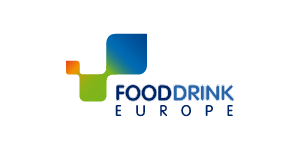
The European Food and Drink Industry Prize
Awarded by FoodDrinkEurope
FoodDrinkEurope, on behalf of Europe’s Food and Drink Industry, is very pleased to award the winner/each member of the winning team with a check for 2,000 €, to help the young scientists in their research pursuits and provide support for their future academic or professional plans.
PEPSICO
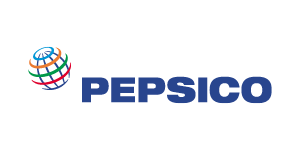
The PEPSICO Prize
PepsiCo is once again delighted to support EUCYS. Owing to the continuing COVID 19 situation across Europe, PEPSICO has decided to offer a personal laptop to each member of the winning team. PepsiCo are pleased to be associated with EUCYS again this year.

Award from the Ministry of Universities
The Ministry of Universities is pleased to present two special awards to the best multidisciplinary project, one for 2020 and another for 2021 projects.
Iberdrola, the utility of the future
With a history of over 170 years, today Iberdrola is a global energy leader, the number-one producer of wind power and one of the world’s biggest electricity utilities by market capitalisation. The group supplies energy to almost 100 million people in dozens of countries and has more than 600,000 shareholders and a workforce comprising more than 38,000 employees.
Iberdrola is leading the transition towards a sustainable energy model through investments in renewable energy, smart grids, large-scale energy storage, and digital transformation, offering the most advanced products and services to our customers.
Iberdrola wishes to promote and encourage the work of future research leaders. For this reason it sponsors The Iberdrola Prize. The winning team will be given 3,000 € with the aim of developing the scientific training of its participants.
The prize will consider Projects from the fields of Engineering and the Environment in both the 2020 and 2021 editions.

Salamanca University Awards
BISITE
The Bioinformatics, Intelligent Systems, and Educational Technology (BISITE) Research Group is formed by a group of researchers whose principal interest is the development and application of intelligent computer systems to different types of problems: AI, ML, Deep Learning, Emotional Systems, Fintech, Blockchain, IoT, Industry 4.0, Smart Cities, Smart Grids, Intelligent Textiles, and Cybersecurity.
The EUCYS BISITE-USAL awards are given to the best projects addressing computer-related topics (one for both 2020 and 2021).
The award will consist of a one-week stay for each of the teams at The Bioinformatics, Intelligent Systems, and Educational Technology Research Group of the University of Salamanca. Minimum age: 18 years at the timed of the visit.
Centro de Investigación Contra el Cáncer (CIC)
The objective of the Cancer Research Center (CIC), which was created in 1995 to promote the Institute of Molecular and Cellular Biology of Cancer (IBMCC) and is under the patronage of the Cancer Research Foundation of the University of Salamanca (FICUS), is to integrate competitive and excellent research on cancer at its basic, clinical, and applied or translational levels. This is achieved with the support of the Junta de Castilla y León, the Higher Council for Scientific Research and the Carlos III National Institute of Health.
The EUCYS CIC-USAL awards are given to the best projects addressing medical issues (one for both 2020 and 2021).
The award will consist of a one-week stay for each of the teams at the Salamanca Cancer Research Center of the University of Salamanca. Minimum age: 18 years at the timed of the visit.
Instituto de Investigación en Agrobiotecnología (CIALE) and Instituto de Biología Funcional y Genómica (IBFG)
The Institute for Agribiotechnology Research (CIALE) was founded in 2000 with a commitment to unite, support, and promote the research and training activities carried out in different areas related to Agriculture at the University of Salamanca. The aims of the CIALE focus on agricultural research and development in areas such as biodiversity, genetic improvement, plant production, plant health, and water resources among others. The work carried out is multidisciplinary and encompasses a wide range of projects involving both basic and applied research.
The Institute of Functional Biology and Genomics (IBFG) is a joint research center between the Consejo Superior de Investigaciones Científicas (CSIC) and the University of Salamanca (USAL). The Institute´s main research interest is understanding the molecular mechanisms that regulate cell growth and division, cell morphogenesis, and the replication and expression of the genome. The IBFG was created in 1970 under the name of the Institute of Microbial Biochemistry (IMB) by Professor Julio R. Villanueva. The IMB was one of the first joint research Institutes between the CSIC and a Spanish University. The IMB was closely linked to the Department of Microbiology of the School of Biology, in the Science building. In 1993, the IMB moved to the Departmental building on the Miguel de Unamuno Campus.
EUCYS CIALE+IBFG-USAL awards are given to the best projects addressing issues related to biodiversity, agriculture, the environment, or water (one for both 2020 and 2021).
The award will consist of a one-week stay for each of the teams at the Institute for Agriboiotechnology Research and the Institute of Functional and Genomic Biology, both from the University of Salamanca. Minimum age: 18 years at the timed of the visit.
Instituto de Neurociencias de Castilla y León
The Institute of Neurosciences of Castilla y León (INCYL) is working on a large number of research projects, using the most advanced methodology to understand the structure, organization and functioning of the nervous system, the mind, behaviour, and ways of becoming ill. Its laboratories investigate diseases and treatments in aspects as relevant as sensory pathology and prevalent neurological and mental diseases such as Alzheimer’s disease, epilepsy, schizophrenia, pain, multiple sclerosis, Parkinson’s, etc.
The EUCYS INCYL-USAL awards are given to the best projects addressing topics related to medicine (one for both 2020 and 2021).
The award will consist of a one-week stay for each of the teams at the Institute of Neurosciences of Castilla y León of the University of Salamanca. Minimum age: 18 years at the timed of the visit.


